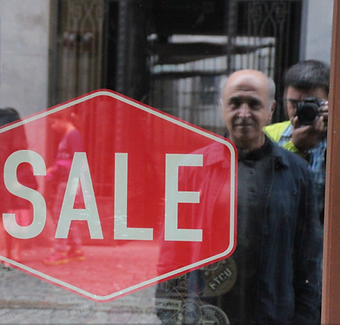
Having just returned from the Azrieli Prizes concert in Montréal (report to be published in Classical Music magazine), this post seems relevant. As a piece by the the elder statesman of the composers there, Josef Bardanishvili‘s Light to My Path was the only piece not receiving its World premiere (instead, it received its North American premiere). That performance is available on medici.tv here for free if you have a medici.tv login (subscription not required and it is the complete concert), while the entire concert will be available on the Azrieli Music Prizes website also.
Written in 2013 to an Israel Camerata Jerusalem commission, Songs of Wine and Love is scored for soprano, countertenor and orchestra. Here on the Israel Camerata’s own label (on a 2017 recording) the soloists are Karen Hadar, soprano, and Yaniv D’Or, countertenor; the conductor is Avner Biron.
The Songs of Wine and Love is fascinating for its choice of poets: Sappho, Shlomo Ibn Gabirol, Federico Garcia Lorca, Omat Khayyam. As Bardanishvili says in his booklet note,
Writing “Songs of Wine and Love” was a humbling experience. My music – I felt – was about to touch the poetry of some of the greatest minds in human history.
So it is that the Greece of Lesbos-based 7th-Century BC of Sappho meets the 11th-Century Persia of Khayyam, the Hebrew texts of the 11th-Century Solomon Ibn Gabrol, and, more recently, the poetry of Lorca.
Bardanishvili’s vocabulary is utterly unique, combining Baroque and Classical ideas with both Western and Oriental Hebrew songwriting (we hear this also in the prize-winning Light to my Path at the Arieili concert). The composer likens Songs of Wine and Love to an Indian rāg or an Arabic Maqam.

Bardanashvili’s music sounds both distanced and contemporary at the same time. The writing is consistently confident (as it is in Light to My Path) and the two voices Hader and D’Or work perfectly together in the third song (Lorca, “The night does not wish to come”).
There is huge power in Bardanashvili’s settings, nowhere less than in the tensile harmonies and powerful thrust of the fourth movement (Sappho, “Blest as the immortal gods is he”). Hader has the purest upper register, and D’Or’s sound is just haunting.
One can really hear the Baroque aspects in the Interlude between two Lorcas settings. The contrast to the pining, winding Orientalosm of Lorca’s “I want no more than a hand” is stark indeed. The final two movements contain unutterable beauty; perhaps in particular the penultimate “Since all that new is” (the texts for this movement mix those by Omar Khayyám ad Sappho Khayyám; the finale is Sappho alone).
You can hear the complete piece in this video with the present performance: this was a live performance celebrating 30 years of music by the Israel Camerata:
The Passion of Rabbi Shimon bar Yochai is based on text taken from the Zohar (that word means “splendour” and forms the basis go Kabbalah, a school of mystical thought initially allied with Judaism (and later integrated into the Western Magical tradition).
So Bardaashvili has created a Passion for a Jewish Saint (the Zohar is sometimes ascribed to Shimon bar Yorchai). The musical tapestry here is very varied. Bardanashvili is not afraid of compelexity; but there is a naked simplicity to some passages, too. The florid cantorial tradition is heard in some of the tenor lines (superbly done by Marcel Beekman). A Narrator (Amil Ilman) is vital, and closely-recorded in this recording (as if to differentiate his contribution from that of the singers and orchestra).
Try this, the second movement, “The Other Side”:
The text takes in The Book of Lamentations but also includes a tract on Lilith which is not for the faint-hearted:
… she takes off her ornaments and turns into a mighty warrior, dress in an attire of consuming fire, all covered with horrible eyes, brandishing a sharp sword, and kills the fool and hurls him into HELL
This is balanced by “Shekinah” (the female presence of God).
Bardanashvili’s compositional virtuosity is nowhere in doubt. All of the soloists are superb: try mezzo Merav Eldan’s vocalise against the narrator’s spoken passages in “Destruction and Exile”:
Rona Israel Kolt is a fine soprano, while The Gary Bertini Choir offers a fervent contribution.
There are some decidedly Orff-like moments in “The Leaving of the Cave,” Beekman’s tenor once more maximally expressive, the remaining soloists blending well together:
The astonishing thing is the event of Bardanishvili’s frame of reference in this piece, the way he can work with many modes of utterance, including the unashamedlyRomantic, in no way sounds anachronistic or contradictory. It is all one vast expression of heartfelt sentiment,
Bardanashvili is at his most emotionally powerful in “The Burial,” in which angel wings take the Rabbi upwards:
Avnre Biron is a fine conductor, his direction alway at the service of Nardanashvili’s undeniably spiritual music.
A phenomenal disc, the perfect introduction to Josef Bardanashvili. The disc is available to stream on Amazon here. A post on Bardanashvili’s piano music will follow in due course.







